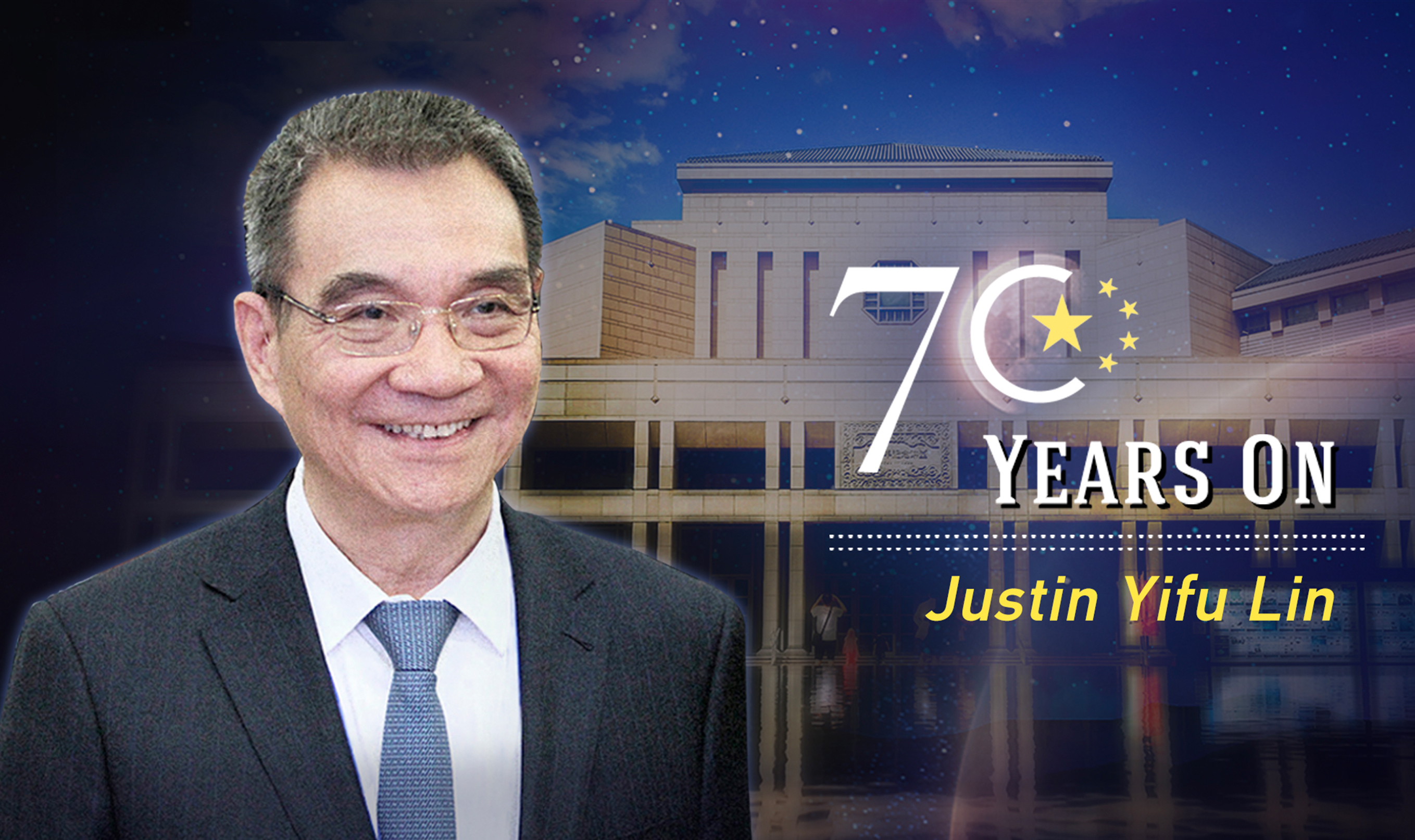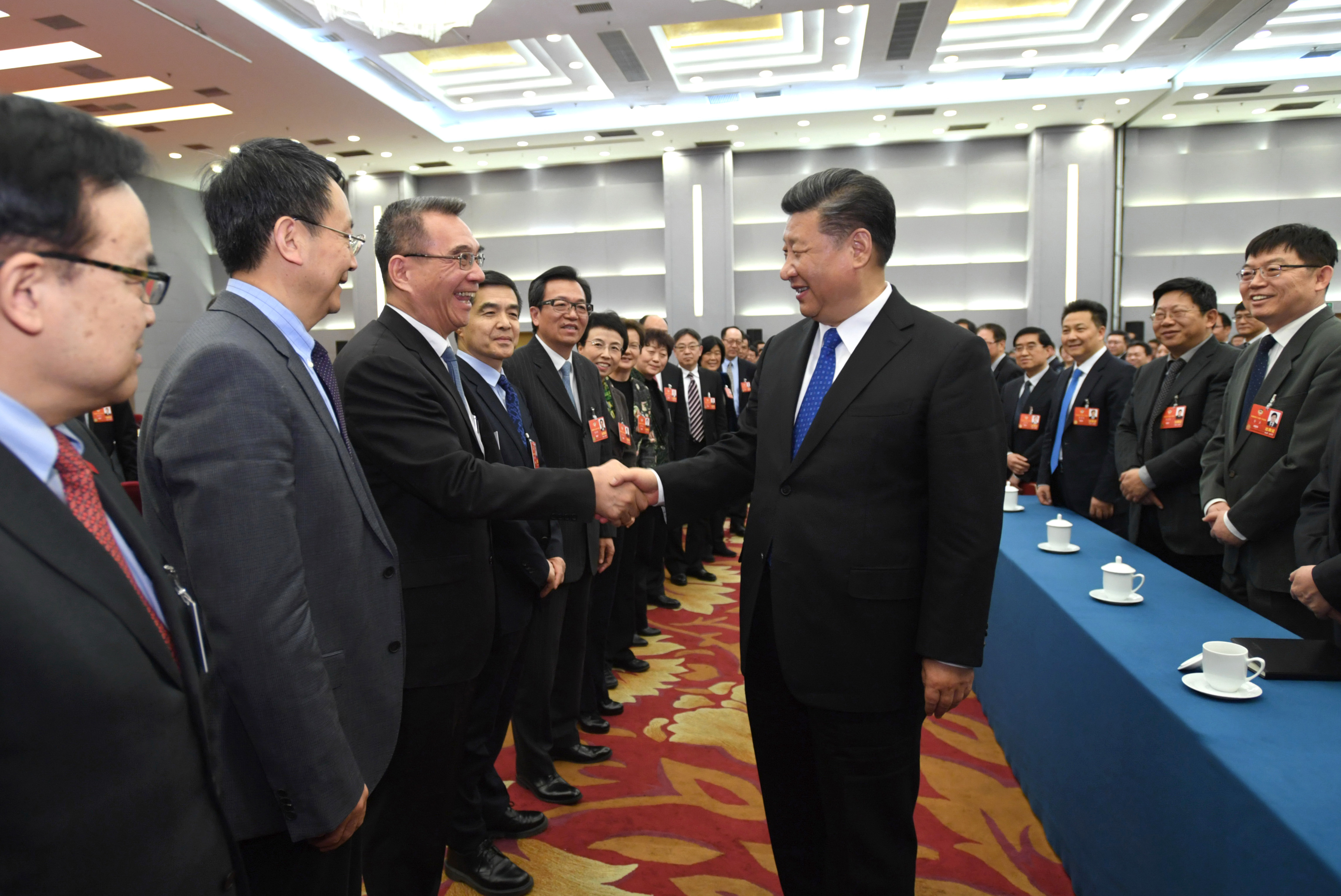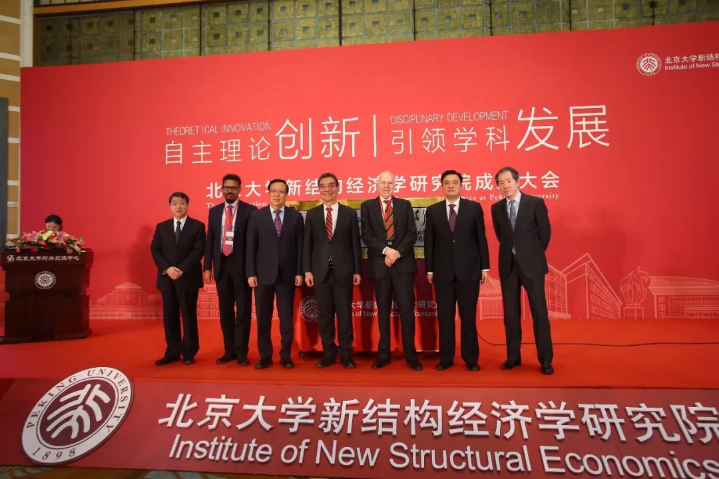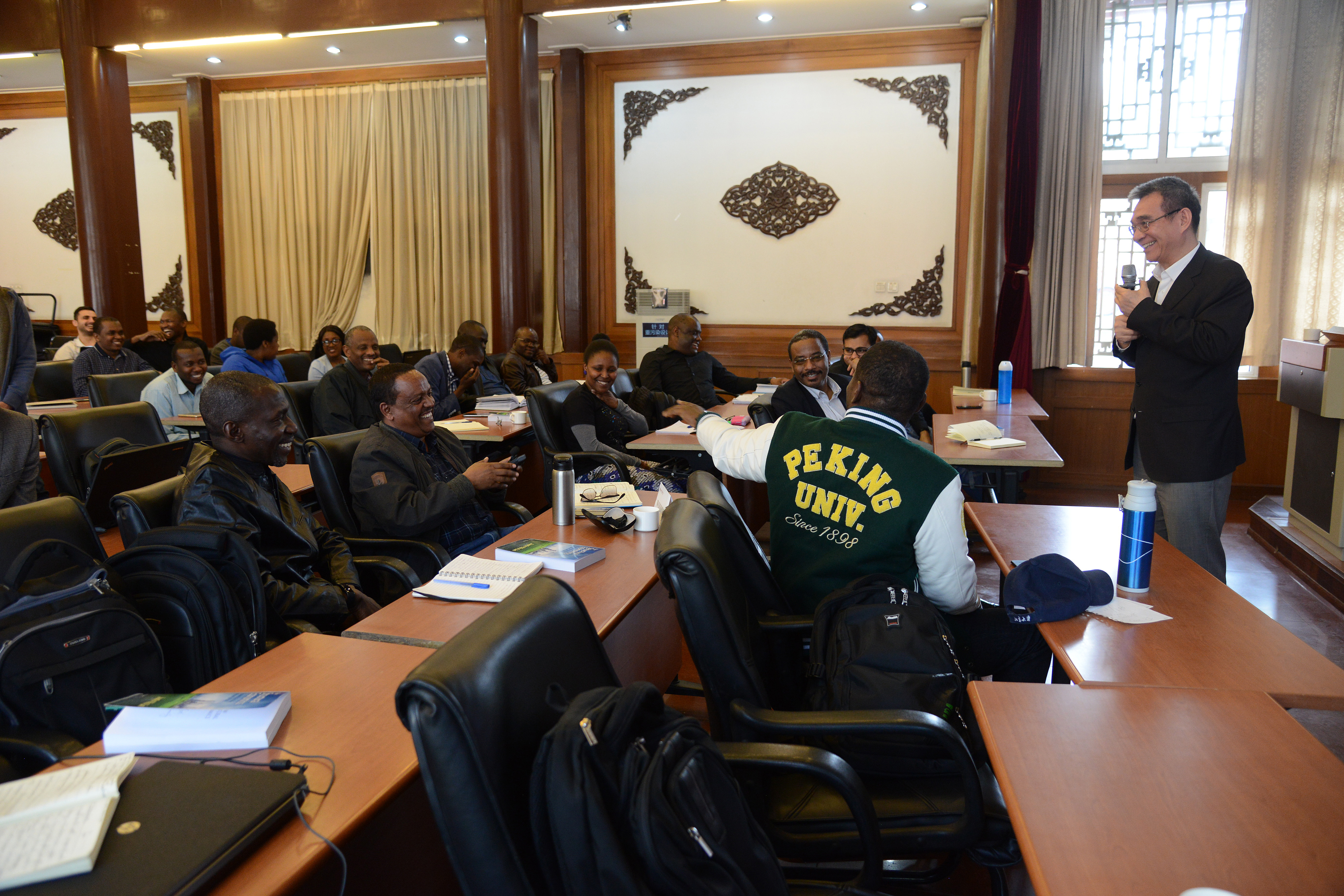Editor’s Note: This story is part of a series of articles celebrating the 70th anniversary of the founding of the People’s Republic of China. Each article shines the spotlight on one PKUer who has made remarkable contributions to China’s recent development, highlighting not only the importance of their individual accomplishments, but also the significant impact Peking University has had on China’s development over the past 70 years.
Peking University, Oct. 25, 2019: Justin Yifu Lin is a world-renowned Chinese economist, the former Chief Economist and Senior Vice President of the World Bank, the founder of New Structural Economics, the first Ph.D. in economics to return home from studying abroad after China’s Reform and Opening-up in 1978, and Honorary Dean of the PKU National School of Development.

Justin Yifu Lin
Quest for
Born in Yilan County, Taiwan
Interested in history, Lin was conversant with the humiliations and frustrations that China had suffered since the Opium Wars. In 1979, the young man made a rather bold decision to travel back and settle in the Chinese mainland. Years later, Lin revealed in an interview that his motive for
After receiving an MA degree from Peking University and a Ph.D. in economics from the University of Chicago, Lin worked as a post doctor at the Growth Center of Yale University. At that time, there was a huge gap in research conditions between China and the West. Scholars in China had difficulties accessing foreign journals, not to mention keeping informed of the latest progress made abroad. Nevertheless, driven by his ambition to serve China, Lin again chose to return in 1987.

President Xi Jinping meeting with Justin Yifu Lin
Demystifying
Lin’s research focused on the Chinese economy. Bearing
Lin proposed his theory of New Structural Economics. Guided by historical materialism, NSE applies the neoclassical approach to the study of the determinants and impacts of economic structure and their evolution. It studies forces and relations of production (the base), including technology and industry, and their impact upon hard infrastructure and institutions (the superstructure) which determine the transaction costs. According to this theory, developing countries or regions should develop industries that conform to their comparative advantages based on their factor endowments structure. It seeks synergies between an effective market and a facilitating state in an effort to achieve economic transformation and upgrading as well as economic and social development. New Structural Economics adequately explain

At the Inaugural Ceremony of the Institute of New Structural Economics
Finding a
Apart from explaining the Chinese economy, New Structural Economics also
In his book

Justin Yifu Lin lecturing to international students
Research as a
Realizing that a strong and wealthy nation cannot be possible by individual effort, Lin decided to establish a research center on
Written by: Zhou Yijing
Edited by: